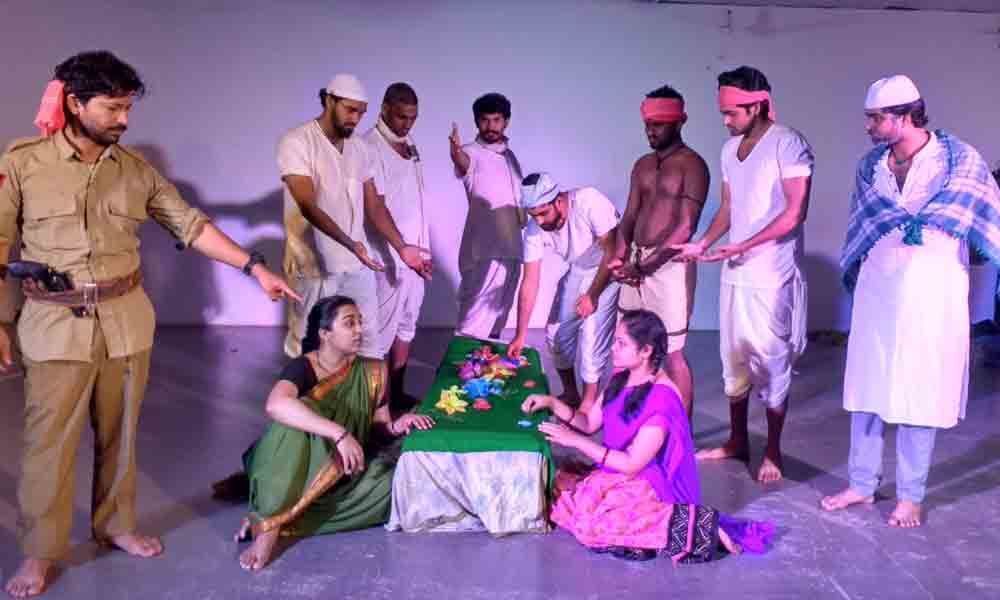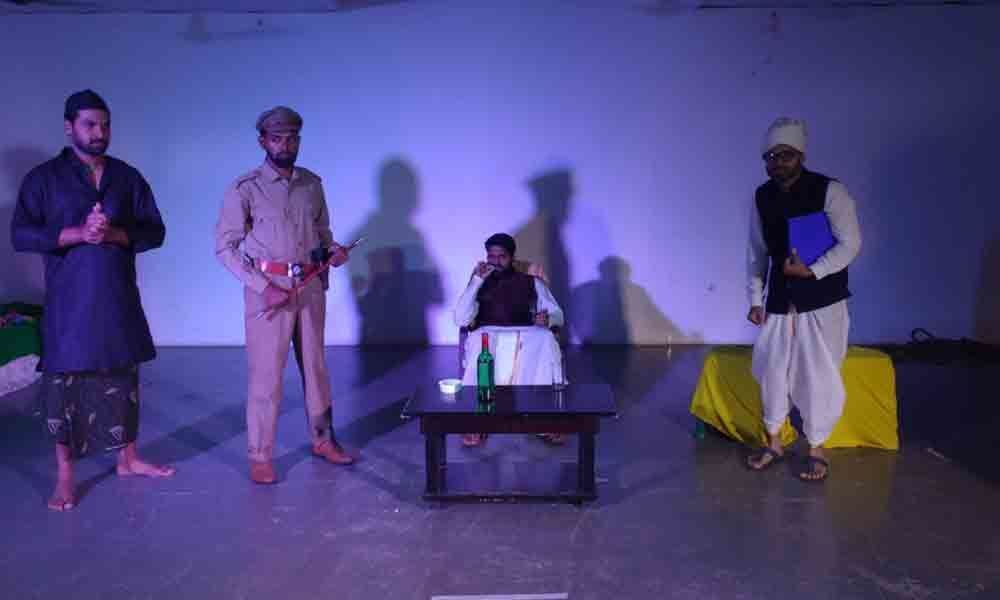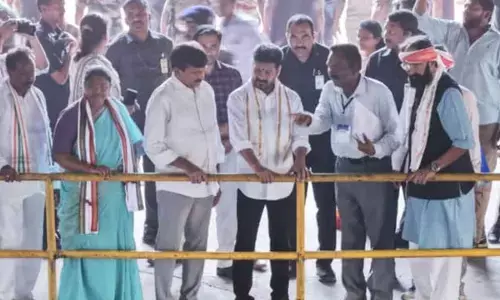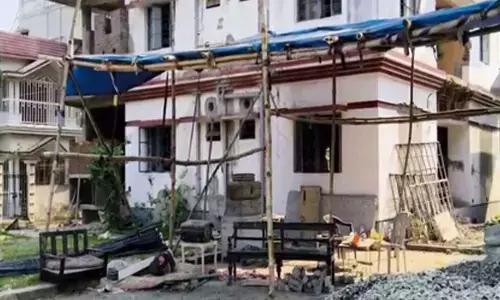The voice of oppressed
‘Maa Bhoomi’ remains evergreen as a slice of history, a lesson in resilience and a social upsurge that impacted the course of the rebellion in Telangana. Dr Pejjai Nagaraju, who recently showcased and directed this play talks about the impact it had on masses of the time…
The brutality of the Zamindars, who amassed thousands of acres of land in collusion with the Nizam's army of Razakars unleashing a reign of terror in Telangana leading to rebellion and liberation is a dark chapter in history that reveals the depravity of men fuelled by greed and power. This dastardly oppression is remembered every September 17 and celebrated as 'liberation day' commemorating the end of this sordid saga. The period of oppression also brought to the fore the resilience, strength and indomitable courage of the women of Telangana who used chilli powder, slings and pestles to defend their honour, families and land. 'Maa Bhoomi' (Our Land) a play written by Sunkara Satyanarayana and Vasireddi Bhaskar Rao during 1946-47 when the oppression was at its peak was hailed for its progressive theme and chaste and idiomatic Telugu and staged a thousand times for two million people within a year creating a record. The first Telugu play to have been staged by the Indian People's Theatre Association (IPTA) it has been staged over 12,000 times to a rousing reception each time. Bringing this play alive with a motley group of 15 actors trained at a workshop conducted by him for over two months is Dr Pejjai Nagaraju, who has a doctorate in Theatre Arts from the University of Hyderabad and a wealth of experience in different aspects of theatre.
Staged for two consecutive days in Hyderabad, the offering from the reputed Samhara theatre group received an enthusiastic reception despite being interrupted by rains and having to shift location indoors says the director, who trained software employees and the US returned theatre enthusiasts to don roles of characters from rural areas that they are unfamiliar with. "This play was banned by the Nizam and people from Nalgonda and other areas apparently travelled to the coastal areas of Andhra Pradesh in bullock carts to see it. The courage shown by the illiterate women of this region has no parallel in any other part of the world. It has many heart-warming incidents of Hindu-Muslim unity against the tyrannical rule of the Nizam and cruel zamindars, who looted poor peasants by imposing levy on their produce. It remains relevant as it shows us how revolution emerges out of oppression," says Nagaraju talking about the inspiration for directing this period drama.
One of the main challenges here was trimming the original length of the three-hour play to a crisp one hour and 40 minutes by removing scenes that were unrelated to the main plot or made little difference to the narrative. The director credited with 20 plays produced by Samahara advised his trainees in the workshop to forget about the audience and get into the skin of the characters they portrayed. "This was a play that did not have one hero. The entire village was the hero and every character had equal importance. It showed the corrupt zamindar Jagannath Reddy, who owned 20,000 acres of land and how he harassed, plundered and looted poor peasants.
It depicted the courage of the people under the leadership of an educated youth Veera Reddy, who formed a 'Sangam' or association through which they reclaimed their lands with the slogan 'land to the tiller'," Nagaraju adds. The inexpensive backdrop for the rural milieu came from grass, ropes and other material picked up from the surrounding areas to look authentic according to him.
'Maa Bhoomi' is a play that remains evergreen as a slice of history, a lesson in resilience and a social upsurge that impacted the course of the rebellion in Telangana. It is still enduring as it unravels the repercussions of oppression that have lessons for all times.














